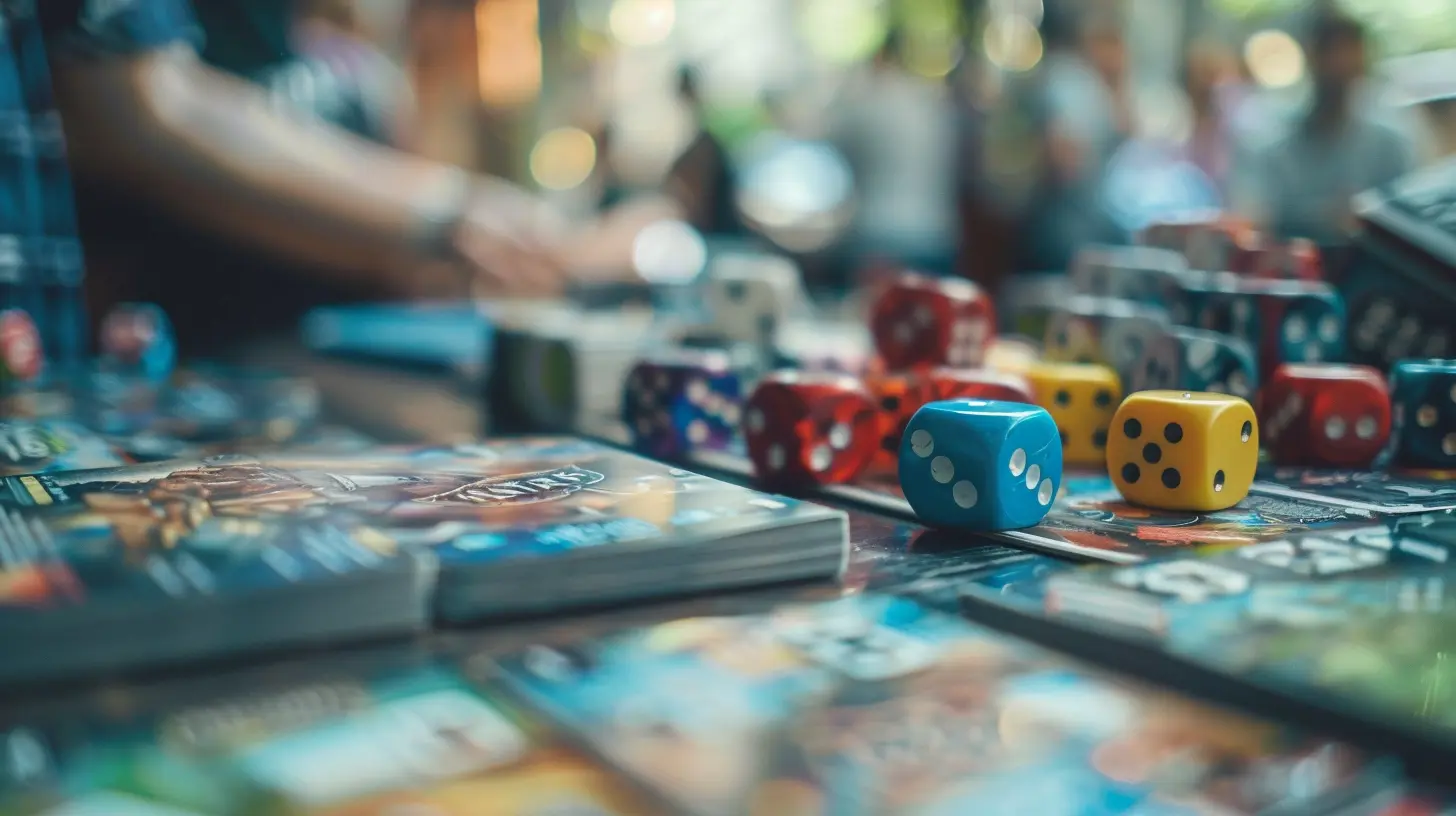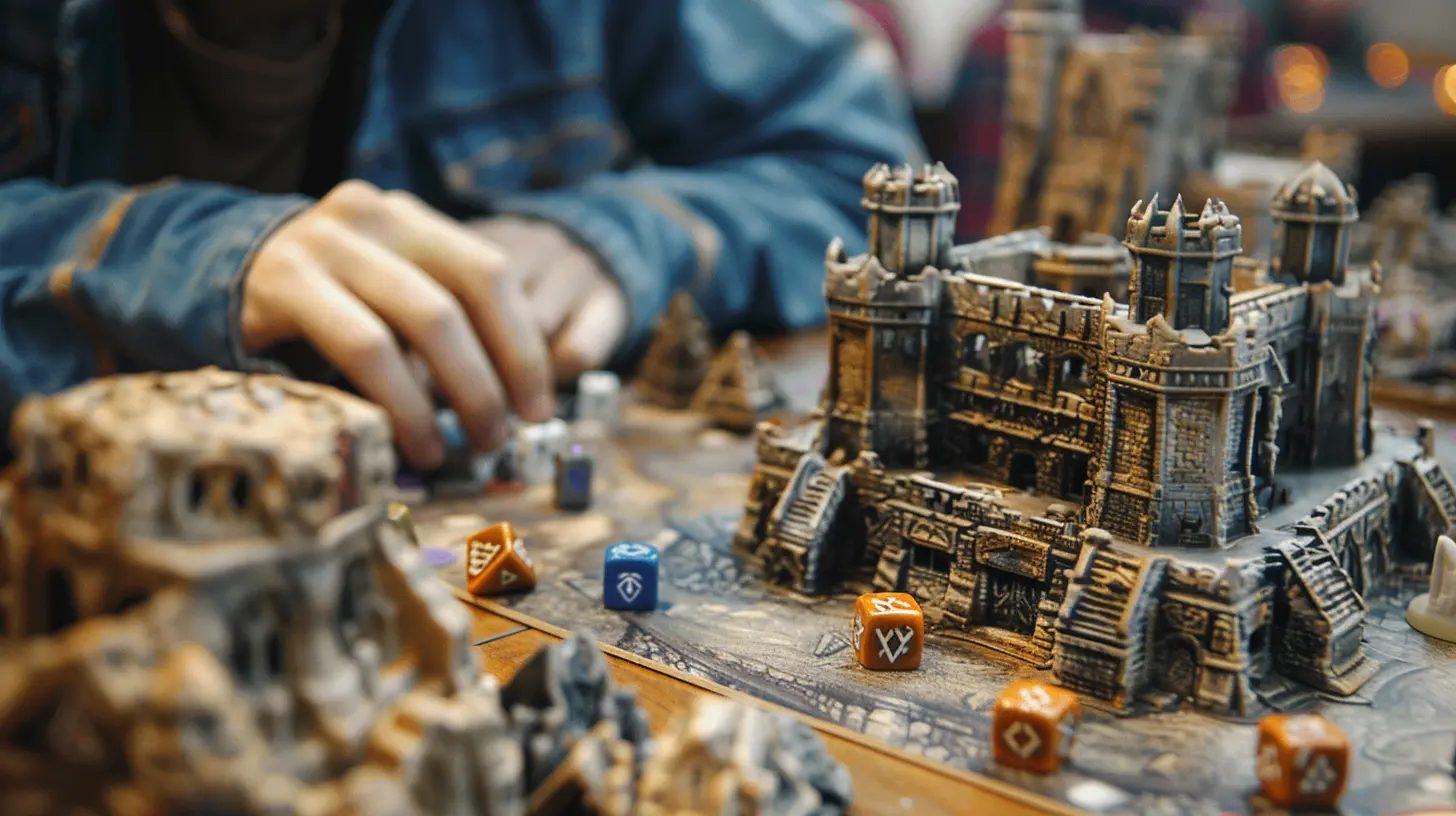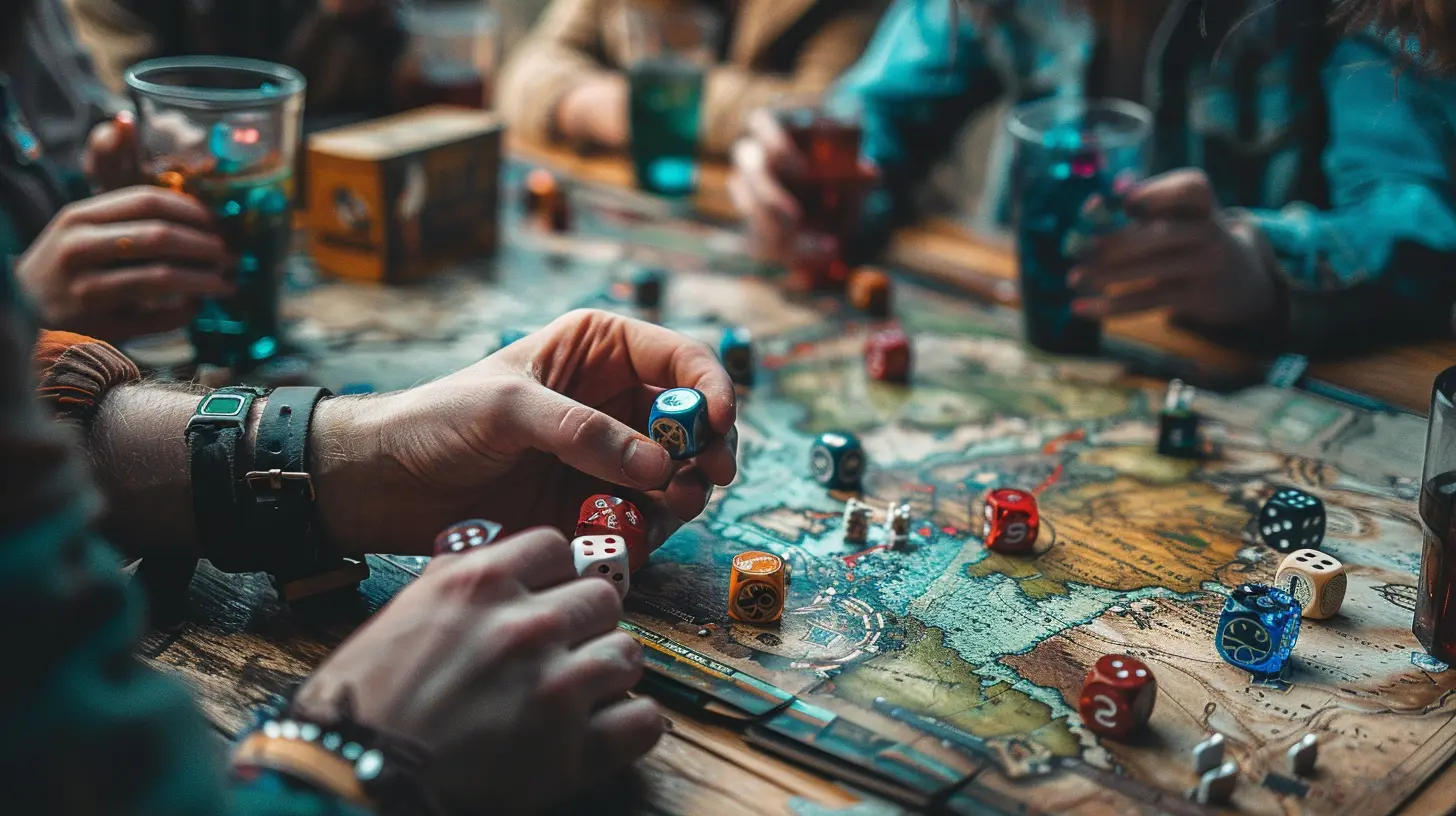How Solo Tabletop Gaming Became an Unexpected Trend
11 June 2025
Let’s be honest for a second—when most of us think about tabletop games, we imagine gathering around a table with friends, rolling dice, sipping on drinks, and swapping jokes over a fantasy battle or sci-fi mission. It's loud, it's chaotic, and it's almost always a social affair.
But guess what?
A surprising number of people are saying, “No thanks, I’ve got this,” and diving deep into tabletop games… alone. Not out of loneliness or necessity, either—some are genuinely loving the solo tabletop experience. Yep, you read that right. Solo tabletop gaming isn’t just a backup plan anymore—it's a full-on trend, and it’s growing fast.
So how exactly did this unexpected shift happen? Why are more gamers choosing to fly solo with their dice and cards? Sit tight, because we’re about to unpack it all.
A Quick Look Back: Tabletop Gaming’s Social Roots
To understand how wild this solo trend is, we’ve gotta rewind the tape a bit.Tabletop games have always been built around community. Classic games like Dungeons & Dragons, Settlers of Catan, or even old-school Monopoly were designed for groups. You needed a game master, friends to play with, and often hours to spare. The more, the merrier, right?
And for years, that was the unwritten rule: tabletop gaming = social gaming.
But like any good plot twist, things started to change…
The Pandemic Pushed Everyone Indoors—Literally
Let’s address the big, elephant-sized dice in the room: the COVID-19 pandemic.Lockdowns happened. Game nights got canceled. Suddenly, even the most extroverted gamers were stuck at home with no one to play with. It was like being benched in the middle of a championship game. So, what did many of us do?
We improvised.
Gamers started exploring solo modes of their favorite board games or discovered games that were specifically built for one. And surprise—many of those solo experiences turned out to be incredibly fun. Addictive, even.
What started as a temporary fix became a permanent habit for tons of people.
It's Not Just a Phase, Mom: Solo Tabletop Gaming Is Legit
Once restrictions lifted and the world opened back up, solo gaming didn’t fade away. In fact, it’s grown stronger. Here’s why:1. The Freedom Is Real
When you're gaming solo, you set the rules. Want to pause mid-game to grab a snack or binge-watch your favorite series in the background? Go for it. No scheduling conflicts, no waiting for late friends, and no compromising on game choice.It's like being the DJ at your own party—full control, baby.
2. It's Surprisingly Immersive
One-player games often focus heavily on narrative, strategy, and choice. You’re not just rolling dice—you’re solving mysteries, surviving in alien worlds, or commanding ancient armies… all in your head. It’s like reading a novel and living it at the same time.Think of it this way: multiplayer games are like blockbuster movies; solo games? They're your deep, personal indie films.
3. Mental Health Boosts? Yep.
Let’s get real—life’s stressful. Solo tabletop gaming gives your brain something juicy to chew on, without the pressure of social interaction. It’s meditative. Calming. Even therapeutic.It’s a hobby that keeps your mind sharp while letting you unplug from the world.
Solo-First Games: The Rising Stars
Now here’s what’s really interesting—game developers are responding in full force. Tons of games today are designed with solo play as their primary mode. Not an afterthought. Not a “yeah, you can TRY it alone” deal. These games are made for the solo adventurer.Let’s name-drop a few crowd-pleasers:
🔹 Gloomhaven: Jaws of the Lion
A tactical dungeon crawler that plays beautifully alone. You don’t even need other players to have a blast (or get totally wrecked by ruthless traps).🔹 Friday
You’re stranded on an island and trying to survive. No dice (literally)—just you and a deck of cards standing between you and disaster. Pure solo brilliance.🔹 Arkham Horror: The Card Game
If you fancy Lovecraftian horror and solving arcane mysteries, this one's a no-brainer. It’s like playing through a twisted horror novel where you’re the main character.These aren't just playable solo—they're arguably better that way.
The Role of Technology: A Digital Handshake
Oddly enough, part of solo tabletop gaming's success came from the digital world. Apps like Tabletop Simulator and Board Game Arena made it easy to play digitally, even alone. There are also YouTube playthroughs, solo gaming forums, and even solo campaign tracking apps.It's the perfect hybrid—good old analog fun, sprinkled with just enough tech to smooth things out.
And let’s not forget Kickstarter. This platform has been a goldmine for solo-friendly games. Designers pitch projects with built-in solo modes because they know—there’s demand, and it’s big.
Who’s Playing Solo Anyway?
The solo tabletop gaming crowd is way more diverse than you might think.- Busy professionals who want a quick mental escape after work.
- Introverts who love games but hate group settings.
- Hardcore board gamers who don’t want to wait around for a group to playtest a new game.
- Story lovers who enjoy immersive narratives without interruptions.
Basically, anyone and everyone.
And the best part? No gatekeeping. You don’t have to be a “real gamer” or a strategy genius to start solo gaming. If you can read a rulebook, you're in.
No Friends? No Problem (Seriously!)
Let’s kill the stigma right now: just because someone plays solo doesn’t mean they're anti-social, lonely, or lacking a social life. Heck, some of the most social people I know play solo tabletop games simply because it's a different kind of fun.It’s like choosing to read a book instead of watching Netflix with friends. Sometimes, you just want quiet, solo time. And there's absolutely nothing wrong with that.
Tips for Getting Started with Solo Tabletop Gaming
Thinking of giving solo gaming a shot? Awesome. Here are some beginner-friendly tips to help you dive in:1. Start Small
Pick a game with a short playtime and simple rules. Don't dive headfirst into a 10-hour campaign right away—you’ll thank me later.2. Watch Playthroughs
YouTube is your best friend. Watching someone else play can help you learn the flow of the game, especially if the rulebook is overwhelming.3. Create a Dedicated Space
Set up a cozy corner for your solo sessions. Trust me—it makes a difference when your gaming setup feels intentional.4. Embrace the Mistakes
Made a rules error? Forgot a card? Let it slide. You're not being judged here—it's just you and the game.5. Try Journaling
Some solo RPGs encourage journaling or writing your character’s story as you play. It adds a creative twist and makes the experience even more personal.The Future Is Solo… and That’s Cool
Here’s the fun twist—solo tabletop gaming isn’t going anywhere. In fact, it’s only getting better. More developers are embracing it, more players are discovering it, and more designs are emerging that stretch what solo games can be.It’s not about replacing multiplayer fun—it’s about adding another layer to the hobby we love. A quiet, personal, and deeply satisfying layer.
So whether you're a seasoned dungeon master or someone who's never touched a meeple in their life, give solo gaming a shot. You might just find your new favorite way to unplug.
Final Thoughts
Solo tabletop gaming began as a workaround, turned into a curiosity, and ended up being a full-blown trend. And honestly? It deserves the spotlight.Just like a good book or a personal playlist, solo board games offer a chance to disconnect from the noise, enter a new world, and enjoy something meaningful—all on your own terms.
So go ahead—light a candle, brew some tea, crack open that rulebook, and roll those dice. Your solo adventure awaits.
all images in this post were generated using AI tools
Category:
Tabletop GamesAuthor:

Lana Johnson
Discussion
rate this article
2 comments
Bear McVicker
What a fantastic exploration of solo tabletop gaming! It’s wonderful to see how this trend offers a unique space for creativity and reflection, allowing players to enjoy their passion alone.
June 23, 2025 at 4:02 AM

Lana Johnson
Thank you! I'm thrilled you enjoyed the exploration of solo tabletop gaming and its creative possibilities.
Sloan McKale
Solo tabletop gaming reflects a profound shift in our search for connection and self-discovery. It empowers individuals to explore narratives alone, redefining community in a world increasingly marked by solitude.
June 17, 2025 at 2:40 PM

Lana Johnson
Thank you for your insightful comment! It beautifully captures the essence of solo tabletop gaming as a powerful avenue for personal exploration and connection in our modern, often isolated lives.


